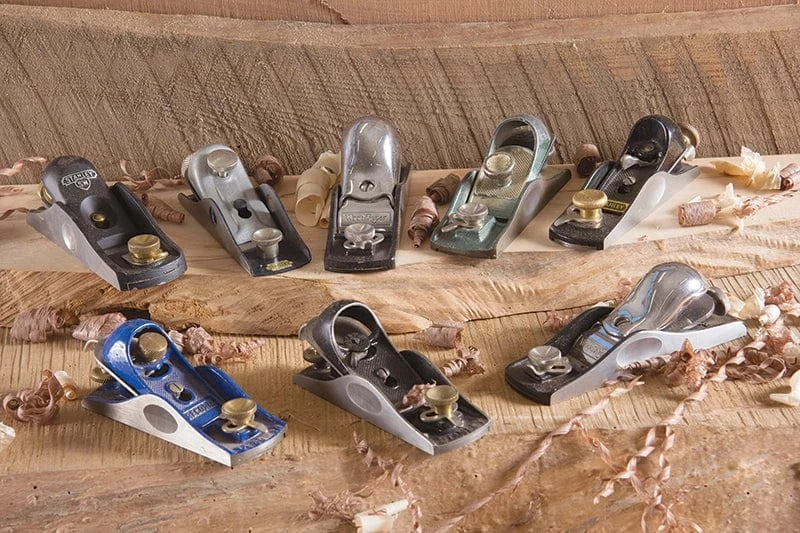
Whether you’re brand-new to the idea of DIY woodworking projects or you’ve dabbled in a garage shop before, the best way to build momentum is to pick your projects with care. The key to early success is selecting simple, straightforward and forgiving plans. Stick with easy woodworking projects for beginners that rely on common tools and square cuts. These early wins matter. You’re building confidence as much as you’re building the project.
Local woodworking classes are a great way to shorten the learning curve, especially if you’re the kind of person who prefers to learn by doing. Many Woodcraft retail locations offer classes for absolute beginners, where you’ll build woodworking projects and learn basic shop safety, tool use and project planning from experienced instructors. You don’t need a dream shop or a huge tool chest to get started — just a willingness to learn.

As for tools, manufacturers like Kreg are a huge help in getting started. Their pocket-hole jig, for instance, can make things easier by helping you get accurate, repeatable results while you focus on learning the craft. With the right setup and support, beginner woodworking projects can be approachable, affordable and genuinely fun.

What Are Good Beginner Woodworking Projects?
When you’re just getting started, small is smart. Projects on a smaller scale are easier to manage, both in your head and in your hands. You can wrap your mind around the steps involved, especially when it comes to joinery, and you're less likely to get overwhelmed halfway through. Physically, smaller builds are easier to clamp, easier to maneuver around the shop, and can be wrapped up in a weekend or even a single afternoon. That quick turnaround keeps things exciting; you can see progress right away, and you get to enjoy a finished piece without a lot of upfront work.
Woodworking project kits take this idea a step further. They often include pre-cut parts, clear instructions and predictable results, giving you time to focus on assembly and finishing. Explore the Woodcraft Learning Center for expert guidance, tips and project ideas. For additional ideas or a woodworking project tutorial, check out free downloadable plans from The Wood Whisperer, as well as instructional videos and helpful inspiration. Resources like these are great companions to the skills you’re developing in the shop.

A time-tested approach is to buy one tool, learn it inside and out, and complete a handful of DIY projects with it. For example, you could buy a block plane, build a few projects where you need to flush up edges or smooth end grain, and gradually learn what that tool is capable of. Before long, you’ll have added both a tool and a technique to your arsenal.

Simple Woodworking Projects for the Kitchen
The kitchen is the perfect place to apply your growing woodworking skills. You learn valuable skills and end up with useful items. A cutting board is a great example of this idea. Fundamental techniques are inherent in its construction, such as ripping and crosscutting, applying glue cleanly, clamping for flatness and sanding to a smooth finish. These tasks seem simple, but mastering them provides a solid foundation that carries over to nearly every other type of project. Along the way, you’ll pick up practical knowledge about glue squeeze-out, drying time and proper clamping pressure — all without risking expensive materials or advanced techniques.
Once you have everything you need to know about cutting boards, it's easy to branch out. Charcuterie boards leave room to play with shape and design, and incorporate handle cutouts or hanging holes. From there, consider stepping up to a serving tray. It's a natural progression, similar to a cutting board but with added complexity, such as side rails or handles. This builds on your skills in layout, joinery and assembly. These kitchen-based builds are great for gifting, practical around the house and a satisfying way to refine your craft.


Woodturning and CNC Projects for Beginners
Traditional DIY woodworking projects for beginners aren’t the only way into the craft; woodturning or CNC might be more your speed. Turning a pen, for instance, is a fast, rewarding project that offers a surprising amount of creative freedom. With a basic lathe setup and a pen kit, you can go from blank to finished gift in under an hour. Along the way, you'll develop tool control, improve your eye for grain and be able to experiment with finishes. Turning kits make great entry points for beginners who like to work fast and see immediate results.

If you’re more tech-minded, CNC projects offer another avenue for creativity. Today’s beginner-friendly machines and software make it easier than ever to design and cut signs, coasters, keepsake boxes and other personalized pieces. Getting started with CNC doesn’t require a degree as a software engineer. Just bring your curiosity and a willingness to learn. Plus, CNC offers repeatability, making it ideal for building in batches, selling at craft fairs, or simply dialing in a new design until it’s perfect. Whether you’re turning or carving, both of these techniques are great alternatives — or complements — to traditional woodworking projects, and just as satisfying in their own way. The real key is to just get started.